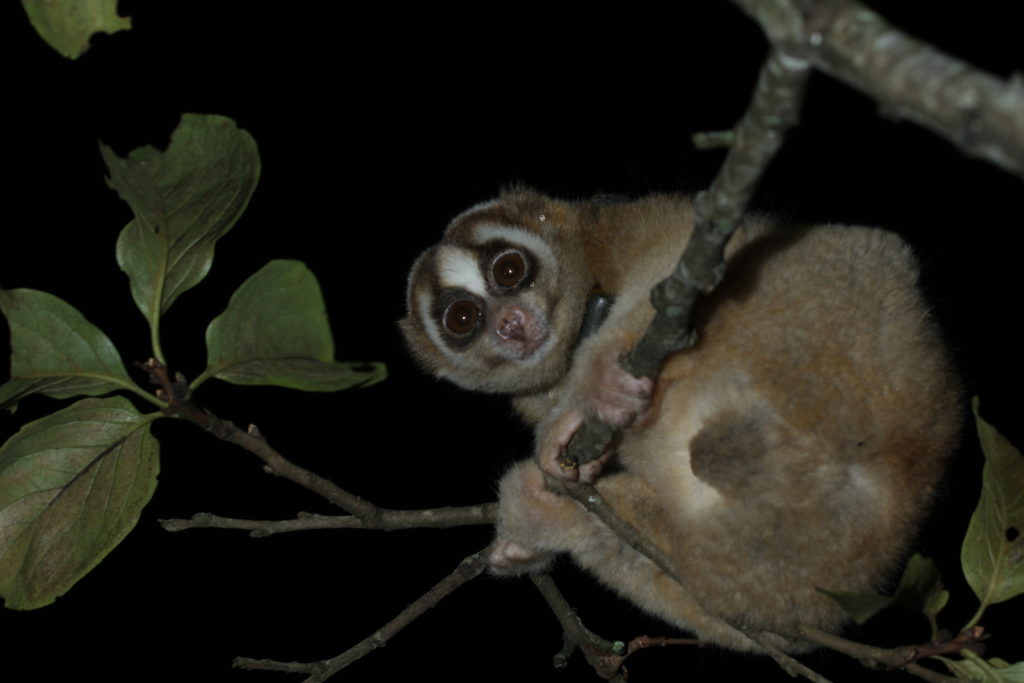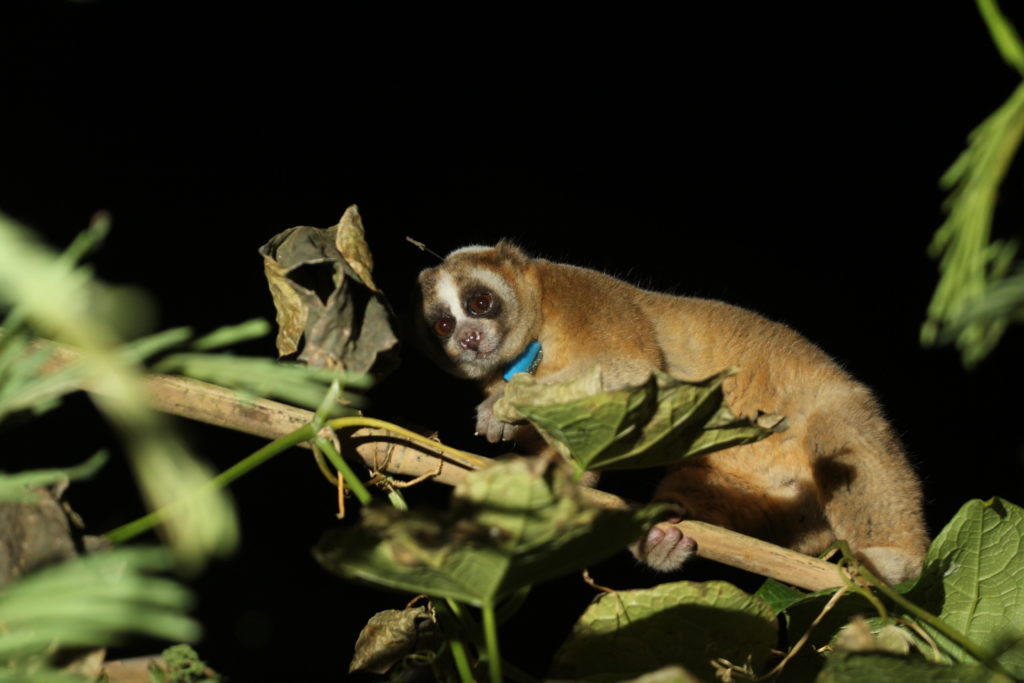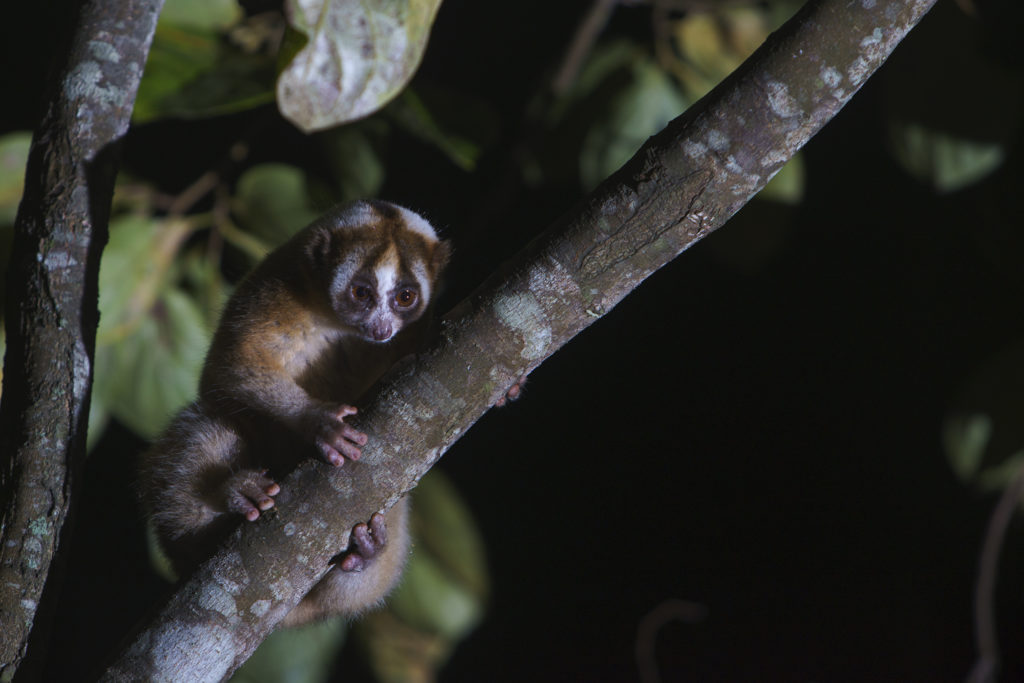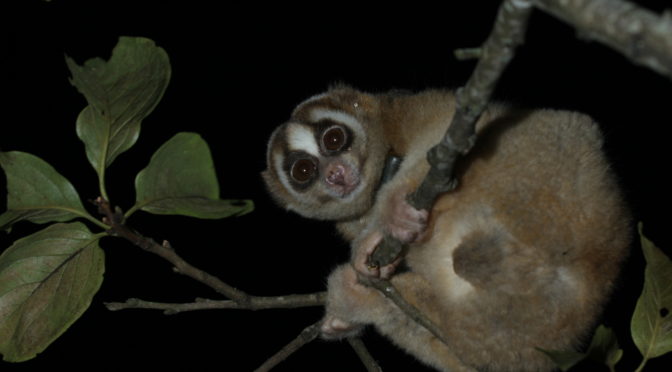As the Field Station Coordinator, I spend a lot of time in the field observing slow lorises. Most nights, nothing too out of the ordinary happens – we see the lorises forage for food, travel throughout their home ranges, and if we’re lucky, have social interactions such as playing or allogrooming with other slow lorises. One night a few months ago, though, was particularly exciting.
Tereh and Fernando

Tereh, a mother of 4, and one of our long-term study subjects, was having a bit of a rough time. Inside her homerange, there were two newcomers. Both adult males, and both currently vying for Tereh’s affections. The first male was one we know very well, Fernando. But he was outside of his normal hamerange with mate Shirley. We do not know why Fernando decided to venture away from his family, but he has always had a reputation among us for being a troublemaker and all around scoundrel, so it actually wasn’t much of a surprise that he was causing trouble somewhere else.

The Newcomer
The second male was unknown to us – someone we had never monitored or seen before. And he was very big! Much bigger than Fernando, who is already quite a good size. We later saw this male around the same area again, and managed to snap a good photo.

The two males were becoming aggressive towards each other, while poor Tereh was caught right in the middle. Thankfully, her two children at the time, Tzatziki and Tyrion, were safely parked elsewhere. The two males hung from a branch wrestling and making aggressive vocalizations. Tereh tried to run away, but Fernando, then the big male, chased after her. They all collided in one big ball and fell to the ground (which thankfully was not very far underneath them!).
A Calm Ending
Soon, though, things quieted down and all three lorises were calm. We observed them from an open patch of coffee bushes, around which they formed a triangle in the surrounding trees. One of the lories made an affiliative vocalization, like a chirp (if you didn’t know what lorises sound like, you might think this was a bird). Then, another voice responded, and another. This went on for a few minutes, all of them calmly chirping in call and response. Finally the two males left Tereh, and went to forage for food together as if nothing had happened. Tereh went on her way and did the same, but in the opposite direction. Thankfully, none of the lorises were injured and none seemed to be distressed.
Behaviors like these are actually very normal for adult males and females in “pre-mating” mode – often times things can get aggressive. This is common in many primate species. What was particularly interesting about this event, though, was that there were two males at the same time, fighting amongst themselves while also being aggressive towards Tereh. Perhaps degrading habitats in the area are forcing more interactions between males who would normally steer clear of each other. Or perhaps the troublemaker Fernando just felt like having a good brawl. It is hard to know at this point, but certainly made for an exciting observation period. ELLA BROWN

